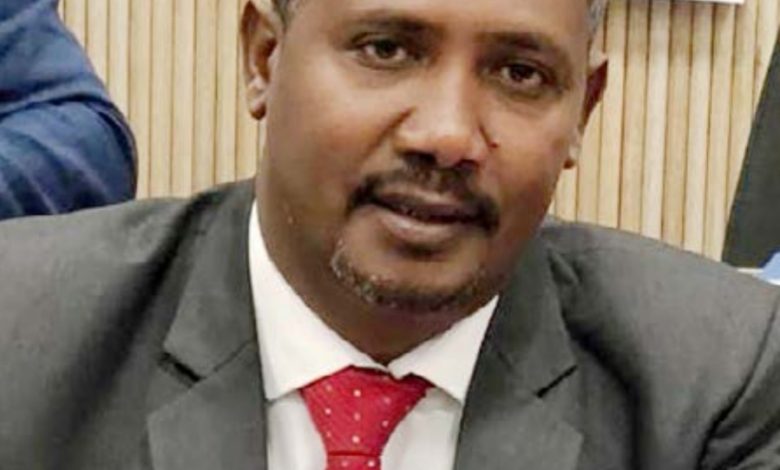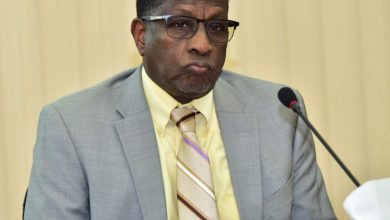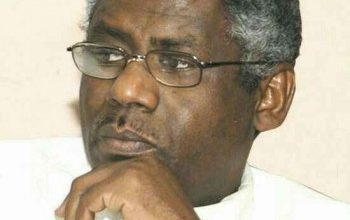The Economic Dimensions of Military Coups in West Africa

Dr. Abdelmajid Mansour Abdelmajid
The first three years of this decade witnessed eight coups in the African continent, six occurring in the West and Central African region. In chronological order, these coups took place in Mali, Guinea, Burkina Faso, Chad, Niger, and most recently, Gabon. This region’s “contagion of military coups” followed its shift towards democratic civil transformation over the past decade. The question arises: What are the motives behind this sudden transformation in the region? Is it of a political, economic, or social nature, or is it a combination of both? Despite significant cultural, social, political, and economic differences among these countries, they share a common legacy of old French colonialism, which has recently transformed into near-total economic exploitation. Additionally, they suffer from fragile institutional structures, armed conflicts, widespread poverty, poor social conditions, and unemployment despite possessing vast natural resources such as oil, gold, uranium, and diamonds. Remarkably, 11 out of 16 countries in West Africa are currently grappling with mounting debt crises. According to the United Nations World Food Programme, over 25 million people in West Africa cannot meet their basic food needs in 2022—a 35% increase since 2020.
However, the most pressing question, often overlooked by most reports and studies on this topic, is: What are the economic motivations and drivers of military coups in West Africa? Why do these coups garner significant support and acquiescence from the population, even though all these democratic systems claim to enjoy the trust of most people? In my estimation, answering this question is crucial to understand the economic motives behind these coups from the perspective of the ordinary citizens who hope for a minimum standard of living in countries where most of their resources flow to great powers through their multinational corporations, leaving only crumbs in the accounts of the top officials in these countries. This has been confirmed by a recent report from the United Nations Development Programme, which emphasised that the “absence of comprehensive economic growth” is a fundamental cause of coups.
I believe this introduction is necessary to establish the economic dimensions of military coups in West Africa. The consequences of any action are often linked to the motivations behind it. The economic effects of military coups in Africa are diverse, taking different dimensions based on a country’s nature, social structure, political history, and economic resources. They have negative implications for national economies, extending to the regional and continental levels and ultimately affecting the global economy. To investigate the local (national) economic dimension of coups in West Africa, we need to understand the geopolitical and demographic characteristics of the region. West Africa consists of sixteen countries covering an area of approximately 6.5 million square kilometres, with a total population of around 250 million. This means an average population density of only 38 people per square kilometre, much lower than the European or Asian averages. Most of West Africa’s population derives their livelihoods from subsistence farming and informal mining. The region’s exports are limited, with most being raw materials. Oil is a source of income for several countries, while cocoa, gold, and phosphates are major exports. Mali and Burkina Faso rely on cotton production, and Niger has uranium resources. Diamonds are also a significant natural resource in West Africa, contributing to many conflicts and financing armed conflicts in the region. The economic growth rates of most countries in the region range from 1% at the lowest to 3.5% at the highest, except for Niger, which achieved an economic growth rate of around 7.5% in 2022.
Theoretically, most political and economic studies of developing countries suggest an inverse relationship between military rule and economic growth. For example, scholars like Acemoglu and Robinson (2014) argue that differences in institutional quality are the primary source of variations in economic growth and prosperity among countries. Additionally, Akçay (2007), in explaining the impact of governing systems on natural resource management, suggests that when a limited elite governs a country, using the military’s power and control over economic resources in society, this leads to the misuse of political and economic institutions to impose more control over economic and political decisions simultaneously. As a result, these political institutions directly and indirectly control the distribution of economic resources and economic performance. Economies tend to grow and thrive under democratic systems where competition is free and fair, and economic activities are transparently managed through laws, policies, and regulations approved by representatives of the people in parliament and overseen by competent and accountable executive and regulatory bodies accountable to public opinion.
However, in practical terms, a closer look at the political systems in the six countries where these coups occurred reveals a starkly different reality. The so-called democratic political systems overthrown by these coups are typically autocratic or single-party systems that have remained in power for extended periods, and their legitimacy extends from amending constitutions and laws. They are often unaccountable and subservient to the beneficiaries of their new colonial masters, lavishing them with the resources of their people at low prices. A clear example is the price of uranium exports from Niger to France, which represents less than 1% of the world price. Since Niger is the second-largest source of uranium for the European Union in 2022, if Niger were to carry out its threat to halt uranium exports to France, it could potentially turn Niger into an international battleground, given the pivotal role uranium plays in tilting the balance of power for one of the competing international actors in the future struggle for influence and wars to come.
When we closely examine the political structure of these countries and the nature of their governing systems, we find a significant contradiction between the theoretical concept of democracy and the political reality. For example, in September 2021, Colonel Mamadou Doumbouya, the leader of the special forces in Guinea, ousted President Alpha Condé. The year before, Condé had amended the constitution to change the rules preventing him from running for a third term, which led to widespread riots. Doumbouya became the interim president and pledged to hold democratic elections within three years. Similarly, in July 2023, the presidential guard in Niger overthrew President Mohamed Bazoum, who came to power through elections with questionable integrity facilitated by a French firm, with results that didn’t even align with Niger’s demographics, as the ethnic group to which Bazoum belongs represents no more than 10% of the population. In August 2023, a group of senior army officers in Gabon seized power and annulled the election results after President Ali Bongo was declared the winner of a third presidential term. It’s worth noting that this coup ended the Bongo dynasty’s rule in Gabon, which had governed the country from 1967 until 2023. While it’s too early to assess whether economic improvements will occur in these countries definitively, the widespread public approval of these coups reflects disillusionment with the performance of democratically elected governments. The statements made by the leaders of these coups, promising to work towards a better standard of living for their people and save their countries from corrupt cooperation with major powers that exploit their resources, as well as the tension and hysteria among international competitors for these countries’ resources, especially France, may indicate the possibility of economic improvement if these countries adopt a national economic model that ensures control over their internal resources while engaging in fair and mutually beneficial global investment and resource development partnerships that respect their national sovereignty. The most important thing is for the leaders of these coups to genuinely strive to transfer power to the people through their representatives in local and federal legislatures and sovereign executive bodies. This task may seem extremely challenging for several reasons, including poverty, weak education systems, and a long history of limited political participation. While all these challenges can be gradually addressed, the greatest danger to achieving this mission remains regional and international interventions in the internal affairs of these countries, igniting wars and supporting rebellious movements under the pretext of promoting democracy to seize these countries’ resources.
On a regional level, military coups in West Africa have varying negative and positive implications for economic development in the African continent. The most significant of these is the suspension of membership in regional institutions and the imposition of economic sanctions on these countries. Typically, the African Union and regional organisations on the continent impose political and economic sanctions on these countries following coups. In this context, the membership of Mali, Guinea, and Niger in the African Union and the Economic Community of West African States (ECOWAS) was suspended following the coups that occurred in the past two years. Sanctions have also been imposed on these countries, including the threat of war, as in the case of Niger. This creates a climate of doubt and uncertainty regarding the economic situation in these countries and negatively affects plans and goals for furthering African economic integration. However, on the flip side, new economic cooperation systems may emerge among these countries based on economic integration, trade, and the creation of free trade areas. This could be part of an economic model that seeks to break free from international dominance and respects national sovereignty. While the latter half of the last century witnessed a “political liberation era” in Africa led by leaders from East and Central Africa, we can now say that the “economic liberation era” is beginning to take shape. The coming years may witness significant transformations in Africa, led by the West and Central African regions.
Amid the significant global transformations that the world is currently experiencing, including climate change, the energy crisis, food scarcity, and the resurgence of the East in international geopolitics after decades of dominance by a single pole, the economic effects of military coups in West Africa may extend beyond the local and regional levels to impact the international stage. This is evident in the fierce international competition between the United States and the West, particularly France on one side and Russia and China on the other, for influence in Africa in general and West Africa in particular. This region is strategically important due to its geopolitical location and abundant and diverse natural resources.
Another important factor is the interest in natural resources managed by major powers through their global companies involved in oil, mineral exploration, and precious resources like gold, uranium, and diamonds. For instance, China has significantly expanded its influence in the Republic of Guinea, with approximately 14 private and state-owned Chinese companies involved in bauxite extraction and processing. China secured about 50% of its bauxite imports from Guinea, totalling around 53 million tons in 2020. It’s worth noting that China is the world’s largest producer and consumer of aluminium. Conversely, France relies on over 80% of its uranium exports from Niger, which is used to operate more than 35% of the total capacity of nuclear reactors for electricity generation.
As a result of the expanding Chinese and Russian influence and the uncertainty surrounding the future presence of France in the region, this might lead to a wide-scale conflict or economic sanctions imposed on these countries through international and regional organisations or unilateral measures, similar to what happened in Sudan at the end of the last century when the United States imposed a crippling unilateral sanctions regime on Sudan in 1997 due to its pursuit of a national project independent of international dominance.
From a trade perspective, the disruptions caused by these coups could lead to a rise in global prices for strategic commodities, raw materials, and crops, such as cocoa, of which more than 70% of Africa’s production comes from West Africa. While this may seem like a negative impact on the global economy, it could positively affect these countries. For example, following the coup in Guinea in May 2021, the country increased its revenues from bauxite by 40% due to rising global prices. Similarly, Niger could sell its uranium exports at an unprecedented rate and at world market prices after the new executive government took control.
The Egyptian writer Abdel Fattah Madi pointed out in his article “African Coups and the Missing Questions in UN Reports” in 2023 that despite the United Nations Development Program report addressing four main research questions, it overlooked other crucial questions. He asked whether the unbalanced economic relations between African countries and former colonial powers deserve greater attention. He questioned why the focus is primarily on the role of African institutions in development while major powers and international financial institutions are not asked to adjust their policies to be more equitable. It raises the question of whether these critical questions were unintentionally omitted from reports of such professionalism issued by established international organisations.
In conclusion, the economic effects of military coups in Africa have three-dimensional impacts that go beyond the local level and extend to the continental and global levels, affecting the global economy. At the local level, ending the extended rule of specific elites with suspicious ties to former colonial powers can achieve a degree of economic independence for these countries if they are committed to genuine democratic transitions with broad popular consent. However, the risk of autocratic rule, lack of responsiveness to the people, and falling into corruption and favouritism remains. Regionally, the current African institutions will remain limited in their ability to provide any economic cooperation initiatives as long as they lack decision-making power. Therefore, creating new economic cooperation systems in the West African region may represent the beginning of an “economic liberation era” for Africa. On the global front, the impact will be seen in the rise of prices for raw materials, minerals, and crops, which could potentially subject major economies to economic shocks. However, the response of these countries remains unknown, but it will undoubtedly be intense as they lose their extended influence in the region. Expanding the circle of economic liberation, coupled with the creation of new economic blocs open to the world and aligned with the interests of their people without compromising their sovereignty, seems to be the only way to achieve economic prosperity for African nations.


